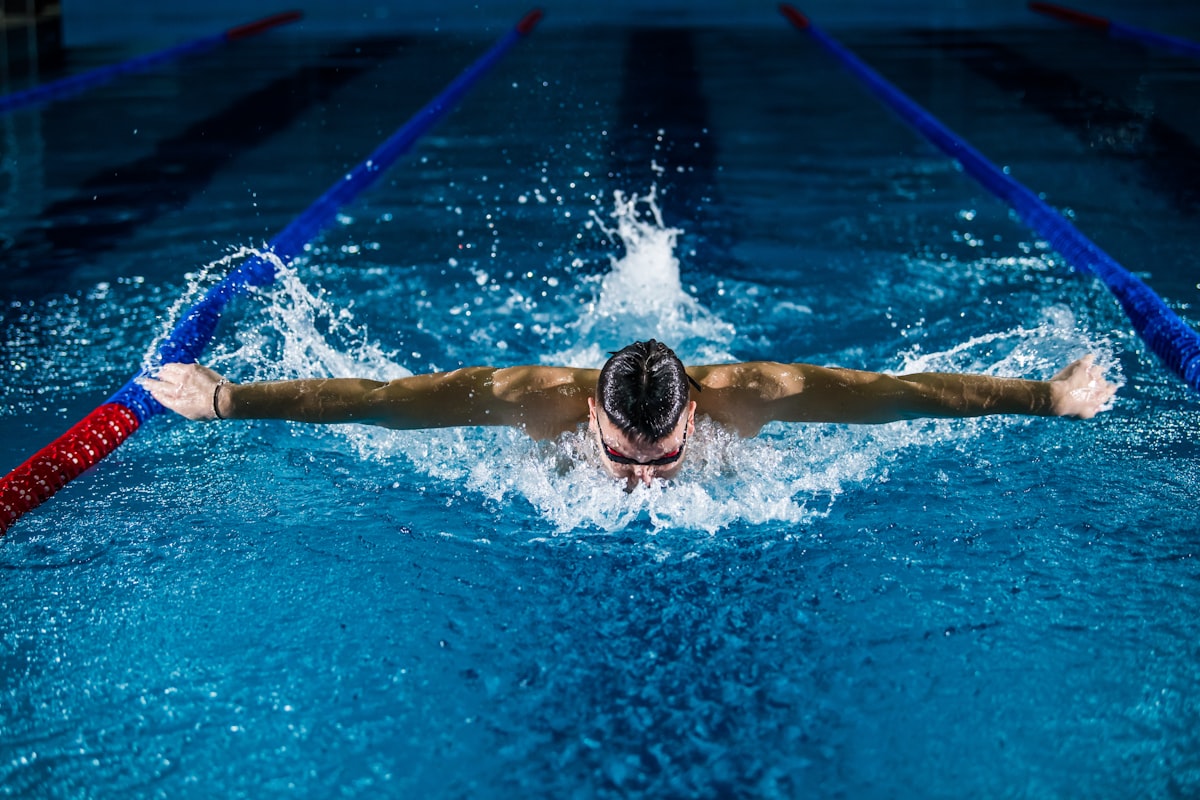Breakfast Notes #33 (Work Like An Athlete, Swimming, Do The Math)

Good morning friends.
I had my first radio interview on ChannelNewsAsia's evening radio program yesterday. It was uncomfortable, exciting and fun going outside of my comfort zone.
- To know what got me that interview - check out this article I wrote that earned me a modicum of internet notoriety.
Working Like An Athlete
As our own Teong Tzen Wei went under 22 seconds for the first time and smashed the SEA Games 50m freestyle record with a time of 21.93, I couldn't help but wonder what athletes could teach us about working.
Undoubtedly, the top-performing athletes work extremely hard. To be a world-class athlete like Tzen Wei and Joseph Schooling, one must sacrifice hours (and hours) to shave off nanoseconds. While guys like me chomp on a burger over the weekend, these people will be swimming laps.
Yet, at the same time, many of them rest aggressively. This explains why athletes live their lives by in-season and off-season cycles to stretch their peaks for as long as possible.
I believe that we too would benefit if we worked as the premier athletes do.
As Alex Soojung-Kim Pang writes in his book, Rest,
we should treat work and rest as equals; that we should treat rest as a skill; that the best, most restorative kinds of rest are active; and that when practiced well, rest can make us more creative and productive, without forcing us into a funhouse mirror of endless work and ever-rising expectations. A life that takes rest seriously is not only a more creative life. When we take the right to rest, when we make rest fulfilling, and when we practice rest through our days and years, we also make our lives richer and more fulfilling.
The cynic in you might think, 'That's easy for you to say. After all, Lebron James and his likes spend millions of dollars a year tending to their bodies!'
Precisely!
For the rest of us, mere mortals who do not enjoy such luxuries, it is more important that we pay greater attention to honing our 'resting' skills.
Swimming in the Deep End
Over the past few days, I took part in an online class from Advanced Computing For Executives called Python Programming.
My biggest takeaway was that to learn fast, one must (with supervision) be thrown to the deep end. I noticed that while the lectures would fly past me, I felt like, despite my best efforts, I did not learn as much. However, when we were given problem sets to apply our knowledge, I noticed that problems were 10x harder than what was taught and that I was learning much faster when I was struggling with the problems.
There is a je ne sais quoi of grappling with hard challenges that make problem-solving hard to boil down into step-by-step formulas. I think the author, Scott Young, says it best,
Passive learning creates knowledge. Active practice creates skill.
If I only listened to the lectures, I could tell you about tuples, panda packages, and NumPy. However, I would not have been able to create a mock inventory list through python.
Visualization Of The Day

We live in the age of advertisements when Uber is expecting a billion dollars in ad revenue in 2024.
Doing The Math
The four day work week is in vogue now.
However, when I told my friends (and even published the idea) that we should strive for a ten-month work year instead. I was greeted with disbelief, cynicism and dismissal.
The common response - 'If a four day work week was so hard to achieve, what more - a ten-month work year?'
I then worked out a simple calculation.
If a four day work week is implemented, we will deduct 52 working days off our working year.
However, if we pushed for a ten-month work year, we would only deduct 40 working days in a year.
Technically speaking, if our culture adopted a ten-month work year, we would still be working more than what a four-day workweek would afford us.
It's funny how things work differently when you work the math out.
Thank you for reading!
May the sun shine upon your face,
Keith